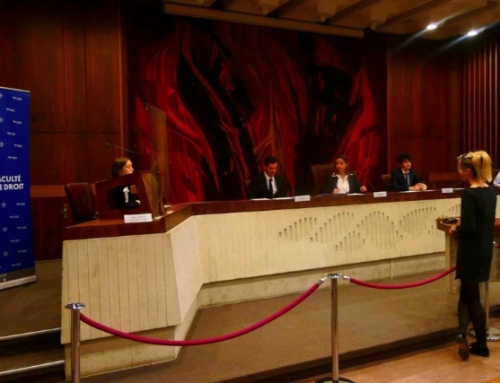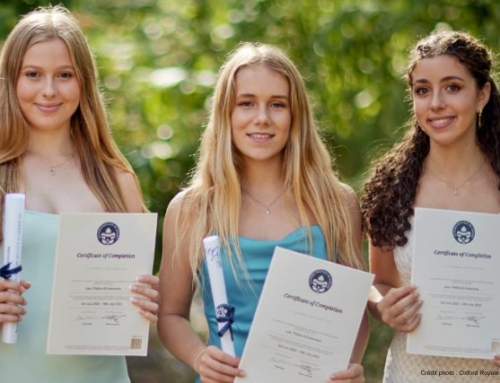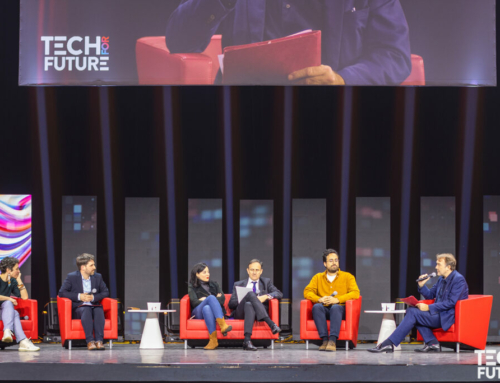The Simone et les Robots team had the pleasure of being invited to Djerba last November for two parallel events.
On the one hand, the XVIIIth Francophonie Summit, hosted this year by Tunisia, in the presence of numerous heads of state, including President Macron, and on the other, the Economic Forum, whose ambition was to highlight the value of the privileged commercial space that the Francophonie represents. Over the course of 4 days, a large number of participants gathered to discuss the richness and diversity of the French-speaking nations. Conferences, speeches and exchanges fueled conversations and encounters. Proudly representing French EdTech alongside our 28 fellow participants[1], we took part in the dynamic innovation and development of the entire French-speaking world.
“Four years after the previous Summit, following the covid, we took stock of the situation, so as to make progress on the major issues of the Francophonie, namely: the development of digital activities, education in French, the development of content in French and creations in French, everything that enables the Francophonie to continue to advance throughout the world…” declared Emmanuel Macron at the end of the Summit, adding that France would host the Summit in 2024. Some will have remembered that “Francophonie is a journey”, a message of hope for us all. The President of the French Republic was able to speak with a delegation of young volunteers involved in the “Jeunes Ambassadeurs Francophones” network, the embodiment of a dynamic Francophonie, mobilized to create a dialogue between young people on five continents who carry out their projects in the French language.
On site, the Francophonie Summit took the form of a village open to the public, with pavilions for each country, and numerous events, performances and concerts demonstrating the diversity of our cultures. But the event was also a natural opportunity to focus on education in a country whose youth is an asset for future development: almost 40% of Tunisia’s population is under 30 (out of a total population of 12 million). The EdTech conference “Understanding the major challenges, Exploring the solutions” enabled the large French delegation – 42 companies invited, including 29 EdTech companies – to meet and exchange ideas with institutional and economic players from many French-speaking African countries and beyond.
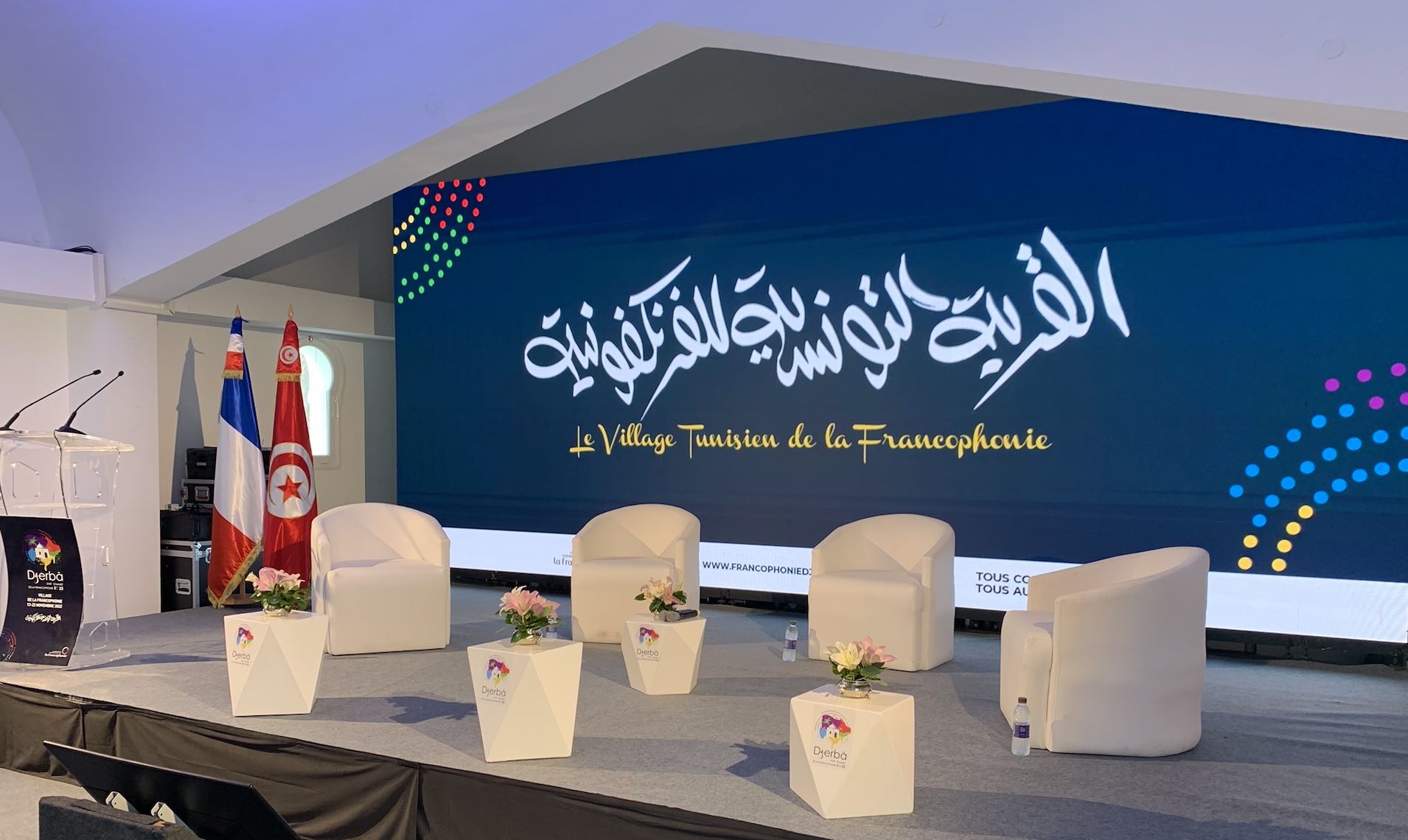
The colloquium featured a number of fascinating roundtables focusing on training and employability thanks to digital tools adopted by educational establishments around the world.
Round table discussions at the EdTech Colloquium
A first round table on the theme of “Le numérique au service de l’employabilité tout au long de la vie professionnelle” brought together Minister Dr. Eng. Nizar Ben Neji, Tunisian Minister of Communication Technologies, Mr. Henri Verdier, Ambassador for Digital Affairs, Mr. Aboubacar Sy, Special Advisor for Communication and Digitization at CONFEMEN (Conference of Ministers of Education of French-speaking States and Governments) and Ms. Wala KASMI, Founder and CEO of Tunisian EdTech WeCode Land. This was an opportunity to talk about “soft skills”, the need to support young people, and innovation in French-speaking countries in the service of necessary digital sovereignty.
From the round table “Regards croisés sur les enjeux du numérique au service de l’éducation et de la formation” with Mr. Audran LE BARON, Director of Digital at the French Ministry of National Education, Youth and Sports, Mr. Lassaad MEZGHANI, Director of the Institut de la Francophonie pour l’Ingénierie de la Connaissance et la Formation à Distance, and Christelle HIEN-KOUAME, Chief Business Officer Group of Côte d’Ivoire EdTech Eneza Education, highlighted the benefits of connectivity for all.
There are two urgent issues on the African continent that reinforce the importance of digital technology: the lack of infrastructure and the shortage of teachers. And since the aim is to train young people in the most in-demand professions – mastery of digital technology, programming languages and the fundamentals of marketing or design – the use of digital platforms for education seems to be the most effective solution.
Rachel Nullans, who was commissioned by Business France and France EduNum International (FENI) to write a white paper on the subject of connectivity, also emphasizes the benefits of digital technology in reducing social divides: “It’s quite exciting to see that digital technology, when well thought out, can effectively make education a common good, and leave no one – or at least as few as possible – by the wayside.”
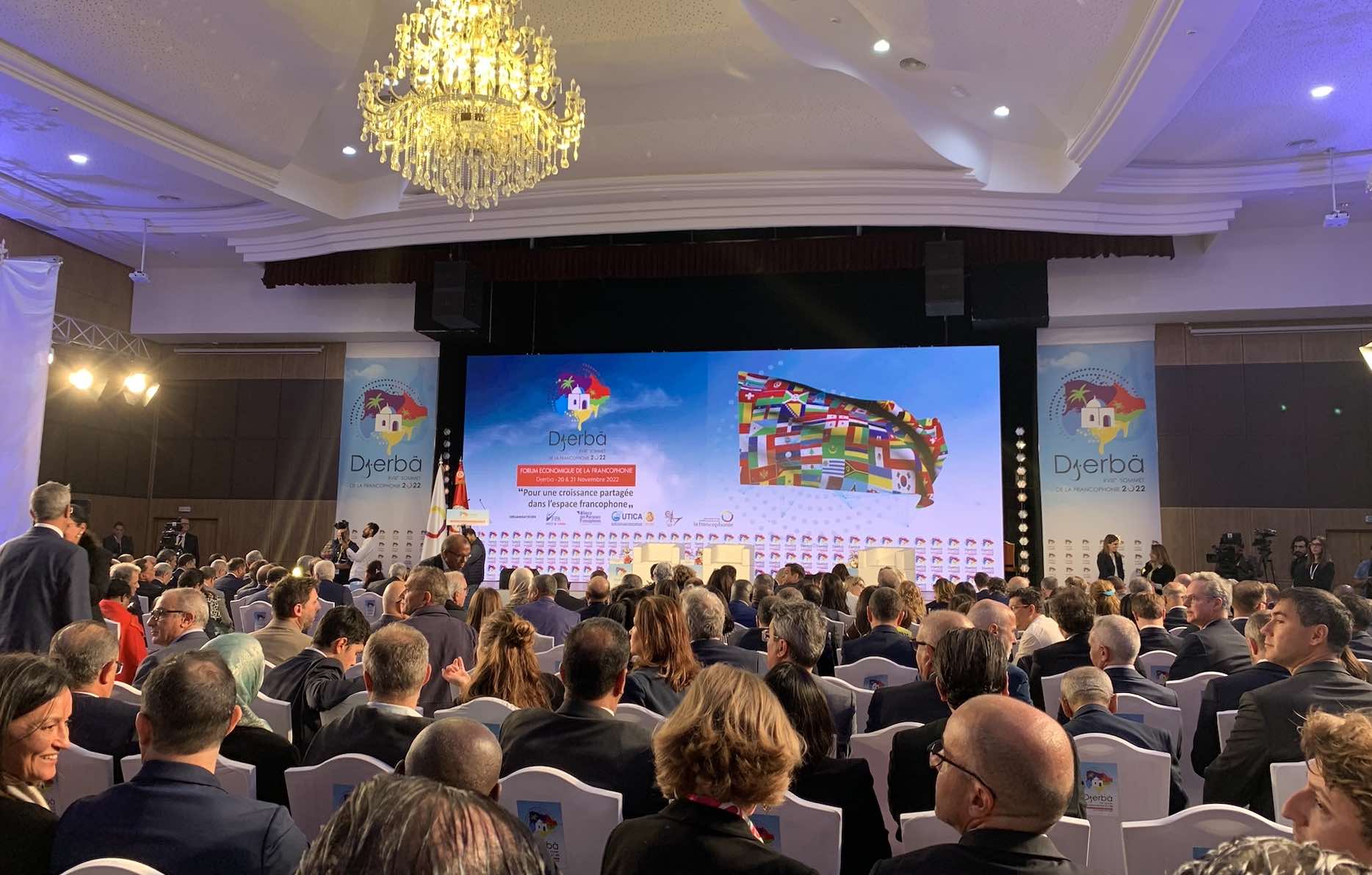
After these fascinating exchanges, the day continued with the Agora des #EdTech, which brought together the delegation’s companies in a highly convivial space, facilitating meetings with local players or those who had come specially from Switzerland, Quebec, Ivory Coast or elsewhere, for the Francophonie Summit. It was an afternoon rich in encounters and exchanges for Simone et les Robots and all the participants. Exchanges that we’re continuing today, in the hope that this Summit will be the start of a wonderful international adventure.
As Frédéric Kuntzmann, CEO of My Serious Game, and Julien Coquet, chargé de mission Business France Tunisie, who led us through the three days of the summit, put it: “This wonderful adventure has confirmed our commitment to the future. And Frédéric added that “digital solutions are now mature enough to be adopted by countries like Tunisia”, opening up promising prospects for the EdTech companies in the delegation. This is also our feeling, as evidenced by several meetings with local players to discuss future collaborations.
We look forward to the next edition! See you in 2023 in Quebec!
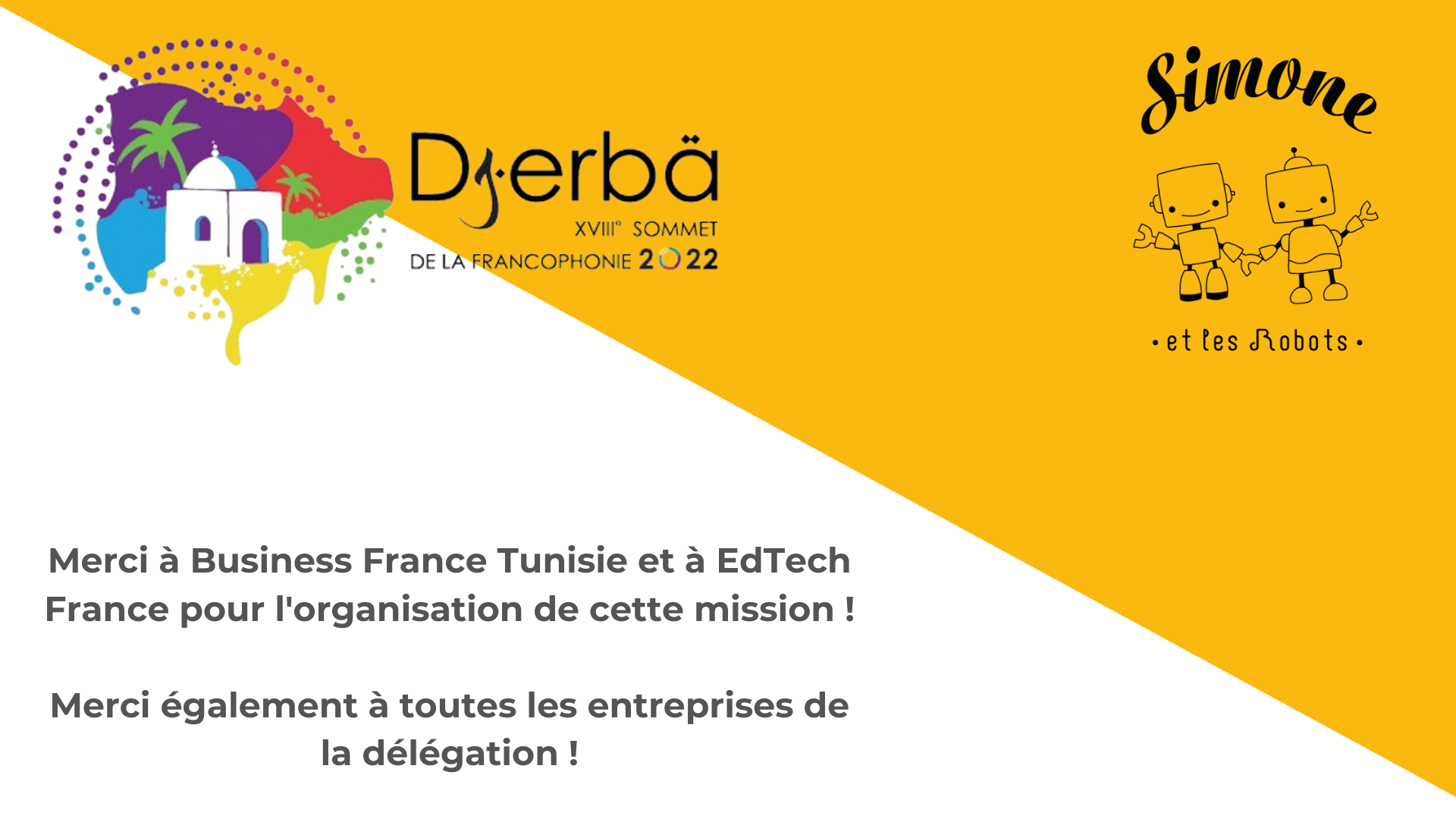
[1] The delegation of French companies led by Business France included 42 companies, 29 of them EdTech.


